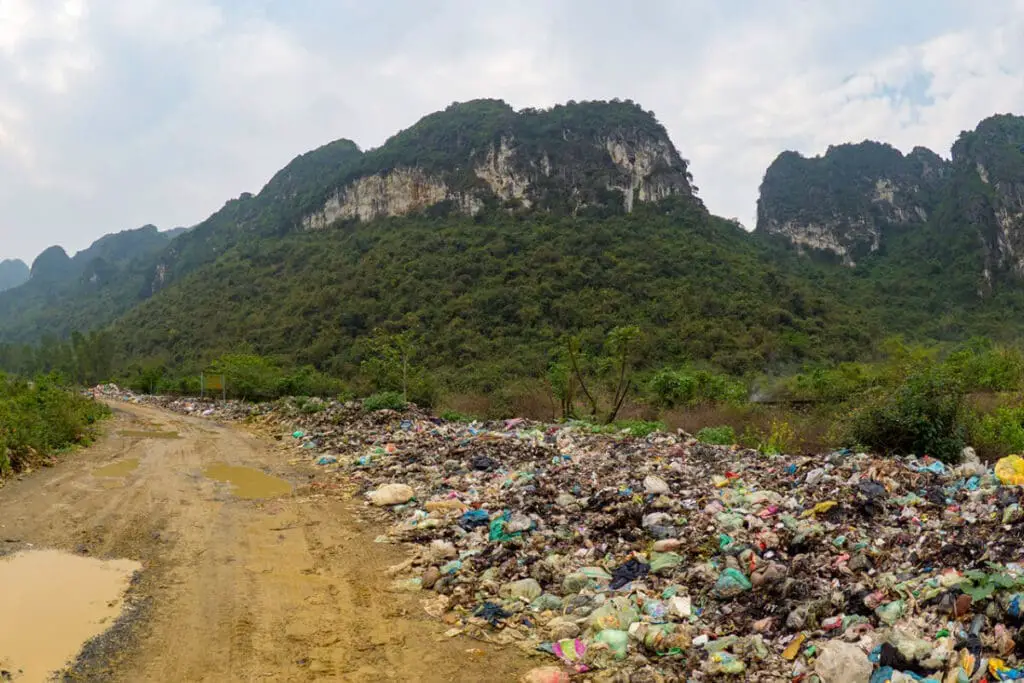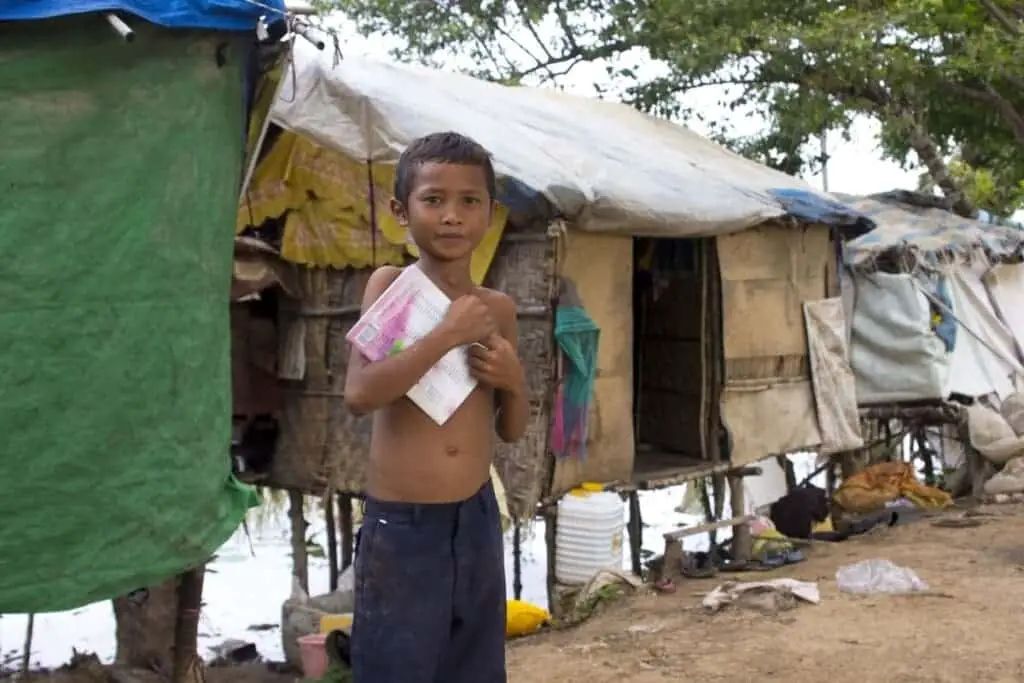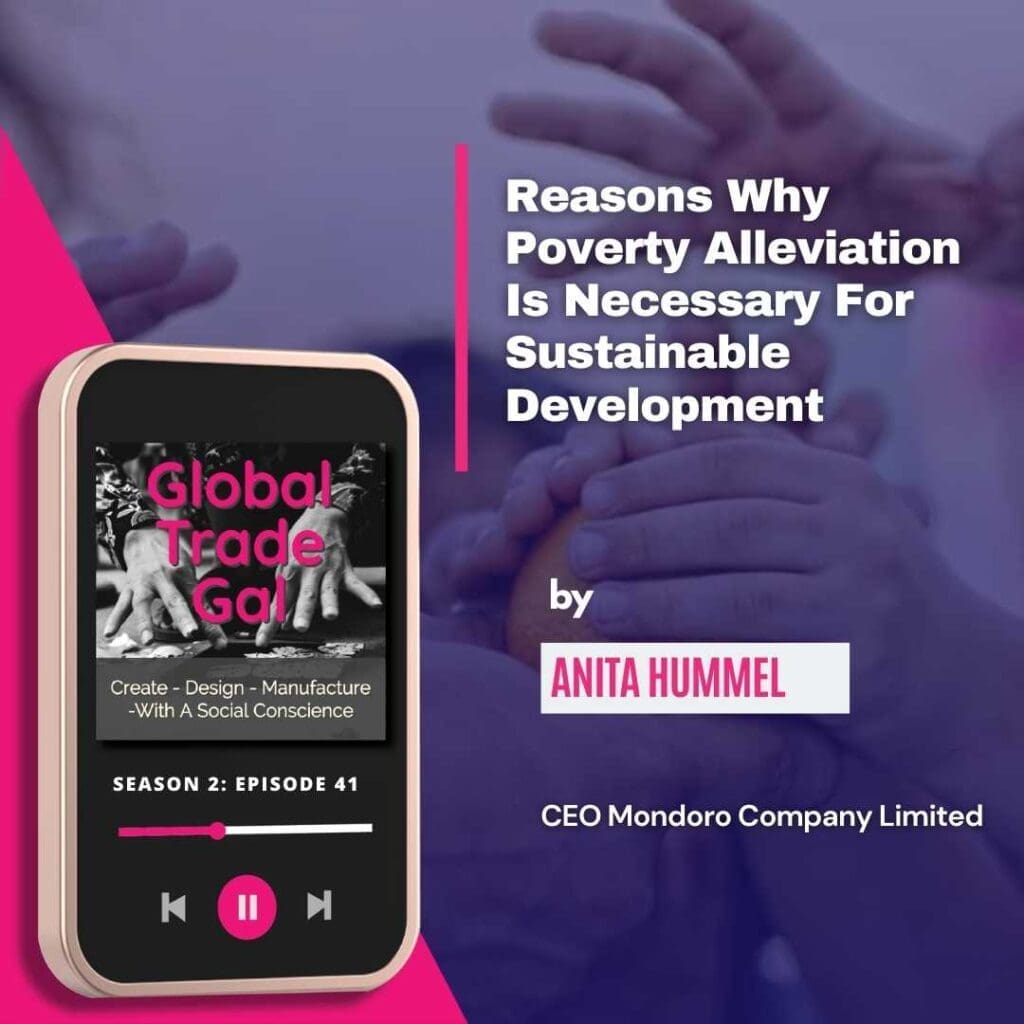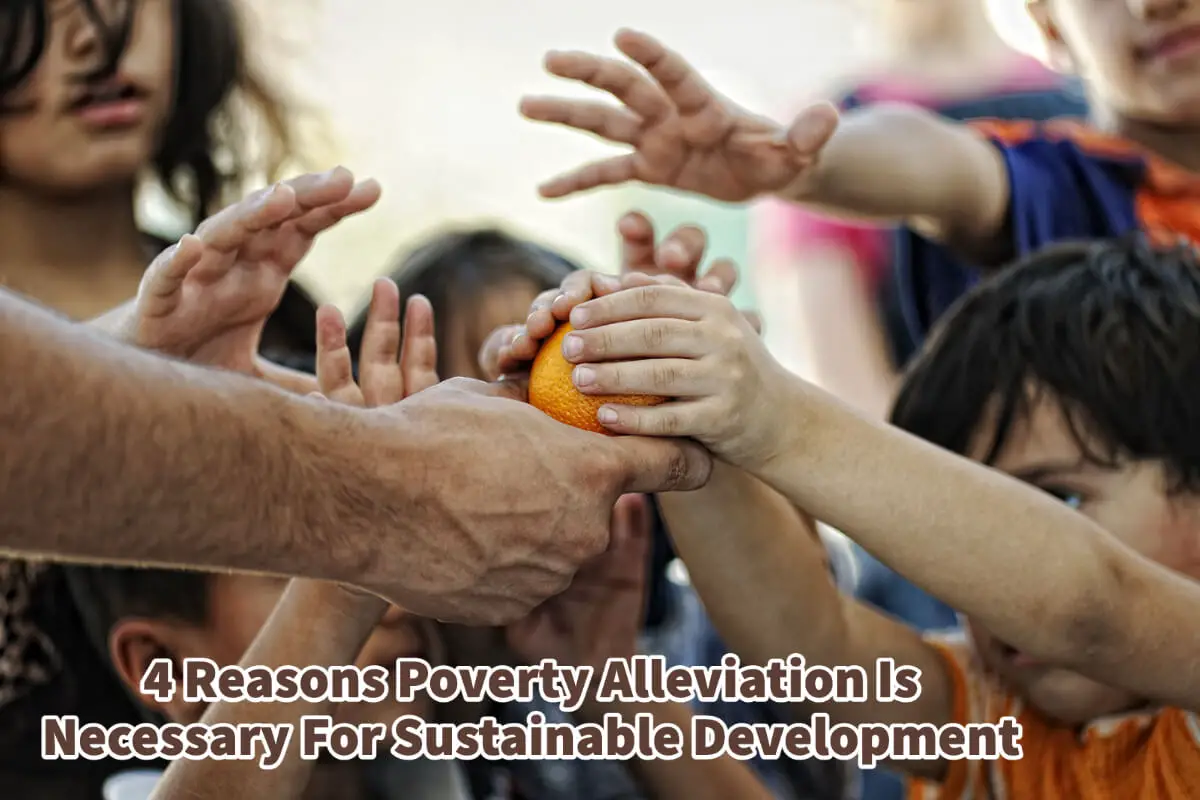Many do not consider poverty alleviation an essential aspect of any company or business. But the truth is that world corporations and companies must look at ways to help alleviate worldwide poverty.
Poverty alleviation is essential for sustainable development. There are four primary reasons why this is important: poverty can cause people to circumvent sustainable development, a lack of education can exasperate the poverty situation, communities in poverty usually lack proper technological access, and finally, poverty can lead to overconsumption of resources, incredibly natural resources.
Table of Contents
- Poverty Causes People To Circumvent Sustainable Development
- Lack Of Education Can Lead To Unsustainable Practices
- People In Poverty Lack Access To Technology That Helps Sustainability
- Poverty Can Lead To Over Consumptions Of Resources And Hurt Sustainable Development
- 10 Reasons Why Caring About Poverty Is Important for Companies
- How Companies Can Alleviate and Solve the Problems of Poverty
- Frequently Asked Questions
- Related Content
Poverty Causes People To Circumvent Sustainable Development
People who live in poverty usually lack money and resources, so this can cause them to circumvent sustainable development. Many may think this does not matter, but in reality, it does matter, as there can be issues that happen years later due to this circumvention.

Years ago, I was in a part of North Vietnam known for its poverty issues. The area of Vietnam had a lot of deforestation issues that also caused problems with land erosion.
The mainly Hmong farmers who lived there had cleared land on the mountain, which caused land erosion and massive floods. These floods and land erosion drove more people deeper into poverty.
That is how poverty can cause people to do things that can hurt the environment for generations. And when it does, it can set up many other generations for poverty.
Lack Of Education Can Lead To Unsustainable Practices
One of the significant issues with poverty is education. In most cases, it is not that someone does not want to be educated, but where and how they live, they do not have access to education. Education can affect sustainability as these people are not educated in sustainable developmental practices.

Over 12% of the world’s population is illiterate, but this will be much higher in some parts of the world; the problem with literacy and education is if people are illiterate, then it will affect their ability to get a good job and to be able to improve their lives.
With our work with Project Sprouts, we have learned that the answer to education is not always straightforward. For many of the children, especially young girls that we have met and are not in school, we have found that it is usually a family issue; the parents need to work all day to try to support the family, so they need the older daughter to be home to tend to the younger children.
Other times the lack of education is simply about access. Many people live in parts of the world where the schools are too far for them to go to every day, or they do not have the funds to move to a major city to get the education they need, so the poverty cycle continues for generations due to a lack of education.

Listen To Our Podcast Reasons Why Poverty Alleviation Is Necessary For Sustainable Development below or by clicking here.
People In Poverty Lack Access To Technology That Helps Sustainability
Poverty not only causes people to find ways to circumvent sustainable practices that can affect future generations, but they usually lack access to technology that can help them be more sustainable.

Even if many people have access to the technology, they may not know how to use it properly. Or in other cases, well-meaning groups give them the technologies, but they have no proper plan to sustain the technology or use it.
For example, worldwide, well-meaning NGOs saw the need for safe water in many impoverished communities. They started to set up wells in these communities. But the truth is that in many instances, the water wells are no longer working; it is estimated that over 50,000 water wells worldwide are no longer working.
Poverty Can Lead To Over Consumptions Of Resources And Hurt Sustainable Development
Many communities in many parts of the world do not understand the full impact of selling their natural resources and how they can lead to environmental and other problems.

In 1988 in the village of Falealupa in Samoa, the villages there were pressured by a logging company to sell the rights to their rainforest so they could raise the money needed to build a new school for the village children. The village felt if they wanted their children to be educated, they had no choice but to sell the logging rights in their rainforest in return for their children’s education.
At the time, an Ethnobotanist from Brigham Young University named Paul Allen Cox heard about this and told the villages that he would raise funds to build the school if they promised not to destroy their rainforest. With the help of family and friends, he raised enough funds. He started a nonprofit called Seacology, whose focus is to help other villages worldwide save their rainforests and other natural resources.
The choice this village in Samoa had to make is not unique to many places where poverty is an issue. Many places may sell their precious natural resources to access clean water, education, or even the internet.
The problem with this is that this kind of development is not sustainable. Once those natural resources are gone, it will usually throw that part of the world into more intense poverty as now they have lost their most precious resources – their natural resources.
Poverty comes with some tough choices, tough choices for sustainable development; the answers to be able to solve this are not always easy. But if all companies worldwide can start to have a social conscience and begin to understand why poverty alleviation and sustainable development are crucial for everyone worldwide, it would help make the world more sustainable.
10 Reasons Why Caring About Poverty Is Important for Companies
Poverty is not just a humanitarian issue; it’s a societal problem that has far-reaching implications for businesses as well. Companies that actively care about poverty and take steps to alleviate it can reap numerous benefits. In this section, we’ll explore 10 compelling reasons why companies should prioritize poverty alleviation and how they can contribute to solving this complex issue.
1. Ethical Responsibility
- Every company operates within a broader community and society. As such, there’s an ethical responsibility to address poverty and the inequalities it perpetuates.
2. Reputation and Brand Image
- Businesses that engage in poverty alleviation efforts are viewed more favorably by consumers. A positive reputation can lead to increased customer loyalty and trust.
3. Employee Morale and Engagement
- Companies that demonstrate a commitment to social causes like poverty reduction tend to attract and retain talented and socially conscious employees. Engaged employees are more productive and innovative.
4. Access to a Larger Consumer Base
- By addressing poverty, companies can help lift people out of poverty, thereby expanding their potential customer base. A thriving middle class can be a boon for businesses.
5. Long-Term Sustainability
- Reducing poverty contributes to a more stable and sustainable society, which can create a more predictable business environment, reducing risks associated with economic instability.
6. Supply Chain Resilience
- Poverty and inequality can disrupt supply chains. By addressing these issues, companies can create more resilient and reliable supply chains.
7. Innovation and Market Opportunities
- Companies that focus on poverty alleviation often discover innovative solutions and new market opportunities, such as products or services tailored to underserved populations.
8. Regulatory Compliance
- Many governments are increasingly introducing regulations that require companies to address social and environmental issues, including poverty. Proactive efforts can help companies stay ahead of regulatory changes.
9. Financial Benefits
- While altruism is a motivating factor, there are also financial incentives. Poverty reduction can lead to increased economic growth and consumer spending, benefiting businesses.
10. Global Stability
- Poverty can be a driver of social unrest and conflict. Companies with global operations have a vested interest in promoting global stability through poverty alleviation efforts.
How Companies Can Alleviate and Solve the Problems of Poverty
Solving the problems of poverty is a complex and long-term endeavor, but companies can play a significant role. Here are some ways businesses can contribute:
- Corporate Social Responsibility (CSR): Implement CSR initiatives that focus on poverty alleviation, such as investing in education, healthcare, and community development.
- Fair Labor Practices: Ensure fair wages, safe working conditions, and equitable employment opportunities for all workers, including those in developing countries.
- Supply Chain Responsibility: Audit and improve supply chains to ensure fair treatment of workers and support local economic development.
- Innovation: Develop products and services that address the needs of underserved populations, potentially creating new revenue streams.
- Partnerships: Collaborate with non-profit organizations, governments, and other stakeholders to maximize the impact of poverty alleviation efforts.
- Advocacy: Use their influence to advocate for policies that address poverty, both locally and globally.
By caring about poverty and actively working to alleviate it, companies can make a positive difference in the world while also benefiting their bottom line and ensuring a more sustainable and equitable future for all.
We can all choose to be part of the world’s solution and not the problem regarding poverty alleviation and sustainable development.
Find out more about how Mondoro can help you create, develop, and manufacture excellent home decor and furniture products – don’t hesitate to contact me, Anita. Check out my email by clicking here or become a part of our community and join our newsletter by clicking here.
Mondoro gives out a FREE Lookbook to anyone interested. You can receive a copy of our latest Lookbook by clicking here.
Listen to our Podcast called Global Trade Gal. You can find it on all major podcast platforms. Try out listening to one of our podcasts by clicking here.
Subscribe to our Mondoro Company Limited YouTube Channel filled with great videos and information by clicking here.
Frequently Asked Questions
How can poverty hinder sustainable development?
Poverty can lead individuals to prioritize immediate survival needs over long-term sustainable practices, such as overexploitation of natural resources for immediate income.
How does a lack of education exacerbate the poverty situation?
Lack of education limits individuals’ access to better job opportunities, further perpetuating the cycle of poverty within communities.
Why is proper technological access important for poverty alleviation?
Access to technology and information is crucial for economic empowerment and improving livelihoods. Without it, individuals and communities may struggle to break free from poverty.
In what ways can poverty impact technological access?
Poverty can limit access to essential technologies like computers, the internet, or even basic utilities like electricity, hindering educational and economic opportunities.
How does poverty lead to overconsumption of natural resources?
When people struggle to meet their basic needs, they often rely heavily on natural resources for survival, leading to overexploitation and environmental degradation.
What are the consequences of overconsumption of natural resources
Overconsumption can result in deforestation, soil erosion, water scarcity, loss of biodiversity, and other environmental issues, negatively impacting the planet’s long-term sustainability.
How can poverty alleviation contribute to sustainable resource management?
By improving living conditions and providing economic opportunities, poverty alleviation can reduce the need for overexploitation, promoting more sustainable use of natural resources.
What are some strategies for poverty alleviation and sustainable development?
Strategies include providing access to quality education, promoting inclusive economic growth, ensuring social safety nets, enhancing technological access, and implementing sustainable resource management practices.
Related Content
What Handicraft Products Is Vietnam Known For?
Vietnam is known for its Vietnamese lacquerware production and has a long history in manufacturing ceramics and porcelain. It also has a long history of basket weaving and silk weaving, along with embroidery and horn production.
You can learn more by reading What Handicraft Products Is Vietnam Known For? by clicking here.
How Does Poverty Affect Children’s Education? Helping Students in Vietnam
Children who are struggling with poverty usually have a harder time with education. This lack of education can lead to lifelong struggles and poverty, so education for children is essential.
There are many ways that education can help a child, such as with their nutritional needs, health, disease control, gender equality, and helping the children eventually break out of the poverty cycle.
By clicking here, you can learn more by reading our blog, How Does Poverty Affect Children’s Education? Helping Students in Vietnam by clicking here.
Why Home Decor Matters? 10 Reasons Why Home Decor is Important
Home Decor matters since how our home is decorated can and will affect all aspects of our lives. Our homes show the world who we are and what is important to us. Our home decor can affect our physical and mental well-being. Our homes are also gathering places for our families, friends, and loved ones.
You can learn more by reading our blog, Why Home Decor Matters? 10 Reasons Why Home Decor is Important by clicking here.


